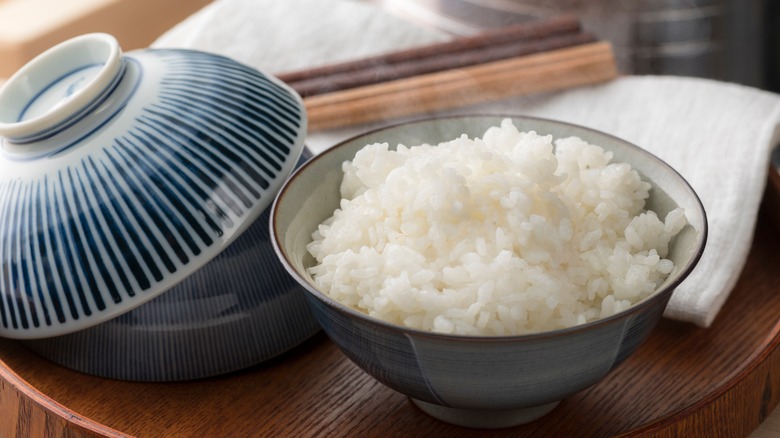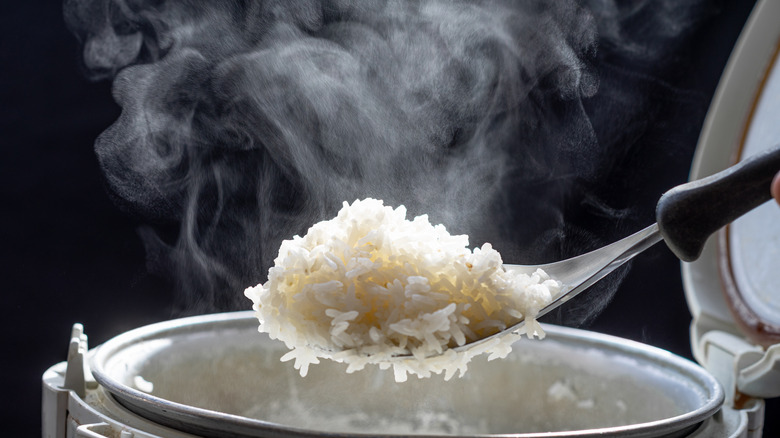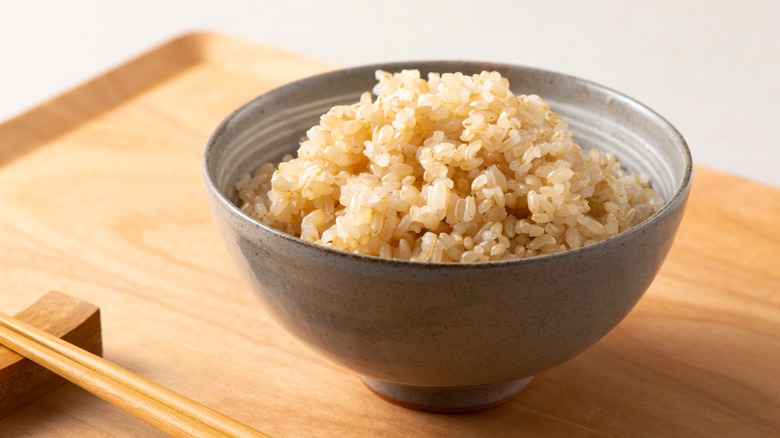The Reason You Should Only Salt Rice After It's Cooked
While the culinary world might be in agreement that it's critically important to salt your pasta water, the jury is still out on when salt should be added to rice. Cooking a basic pot of white rice shouldn't inspire heated debates, but (like most things on the internet) it has. Depending on who you ask, one of the biggest mistakes you can make when cooking rice is either to salt your rice's cooking water or to skip the salt.
Proponents of salting rice water claim that skipping this step will result in a batch of bland rice. However, it's worth noting that some of the world's top rice-consuming countries like China and Japan tend to prefer saving the salt for after the rice is finished cooking. There doesn't seem to be a definitive explanation for why this is, though some have speculated that it is because the rice is always an accompaniment to another dish like dal or stir fry that is usually well seasoned.
It helps to go to the experts when trying to get to the bottom of a debate like this one. So what does a James Beard Award-winning chef think about how to properly season rice?
Reasons to skip the salt
If anyone could be considered an expert on rice, it's chef JJ Johnson. His Harlem fast-casual restaurant "Field Trip" is focused on rice bowls, and uses them as the basis to showcase a variety of global cuisines.
Johnson takes a definitive stance against salting rice before it's cooked. Explaining to Insider, he says that if you add salt to rice's cooking water before it's cooked, it's not really accomplishing anything. Rice's hard kernels are too tough to soak up any seasonings until after they've cooked. If you really want your grains to soak up flavors from dry seasonings like salt, it's best done after the grains have cooked. When rice cooks, it's absorbing the cooking liquid, but it's actually the heat that gelatinizes and softens the grain.
To continue comparing rice to pasta, when pasta cooks it is able to absorb both the salt and the water as it does so. Johnson says that this isn't the case for rice which won't absorb the salt until it opens up at the end of cooking. Instead, it should simply be seasoned at the end. Though if you are truly worried about cooking bland rice, there are other ways to spice things up.
Other ways to flavor rice
According to JJ Johnson, one of the best ways to season rice is to use a more flavorful cooking liquid. As mentioned earlier, rice may not soak up salt easily, but it does take on its cooking liquid. So, by swapping water with a broth or stock, you'll add a punch of flavor to your rice as it cooks. Rice absorbs the majority of its cooking water when it's prepared, so it's uniquely suited to take on those flavors. Stock is a great starting point, but using unexpected liquids like apple cider can work just as well. Get creative and experiment with unique flavors that suit any accompanying dishes.
Another way to add more flavor is to toast your rice beforehand. This is considered the traditional way to prepare rice pilaf. Just cook the rice in the cooking vessel with a bit of fat for a few minutes before adding the water, and you'll add a rich, nutty, toasted flavor to the grains.
Put all these tips together, and you'll have the best-tasting rice every time.


